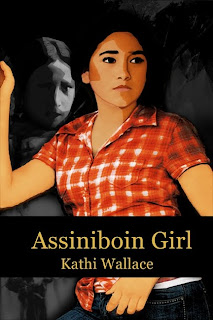Help me welcome Kathi Wallace. She's our guest blogger. My future aim is to entice authors of all genres to share their love of writing with you. Kathi writes for young adults, one of the hottest markets going. Please visit Kathi's website and check out her books.
Namaste
Dyanne
Teaching Children to
Write Starts with Teaching Them Story-Telling
I really like kids. I enjoy the sound of their voices when
they are playing. I love to hear their giggles and whispers but watching them
discover something for the first time is just sheer joy. Turning my joy in children
into a profession was a natural evolution and I spent twenty years of my
working life as an early childhood educator.
One of the things I have always tried to share with children
was my love of books, having been introduced to books at an early age myself. I
can still remember the patience of my grandmother as she would agree to read me
'Just one more, please, Mamo!'.
When I learned to read myself, I devoured everything I could
get my hands on and at times, my desires outstripped my abilities; I read Anne
McCaffrey's Dragonflight when I was seven and not surprisingly, didn't like it
at all. It wasn't until ten years had passed and my father gave me an omnibus
of McCaffrey’s work that I realized - Wow! Needless to say, after that I
gobbled everything of hers I could get my hands on.
It only seemed right to share this passion for reading with
kids, not only my own, but the ones I dealt with on a day-to-day basis in my
daycare center. Reading and telling stories were one of the day's highlights,
not only for the kids but for myself and the staff as well.
As an educator, mother and writer, I feel very strongly
about encouraging children to share their creativity and a great way to do this
is through story-telling.
Children get validation when they are listened to; being
listened to increases their sense of self and their importance in the scheme of
things. There is no better way to get kids talking and others listening than to
have them tell or write stories. Telling stories increases vocabulary and
expands a child's ability to imagine and there is no better gift to give a
developing mind.
When is a child ready to make up their own stories? When they
can listen to a story, then repeat back some of the main points of that story,
they are ready. I've had kids as young as three do this, but bear in mind that
not all kids develop at the same rate and not all children listen in the same
manner. Some kids process while they move, so that tapping or rolling around
they're doing doesn't necessarily mean they aren't hearing the story, which is
why they need to be asked what they've just heard.
One good way to get your child started telling their own
stories is to first tell a few yourself. Sometimes kids don't really understand
what telling stories is all about – and I totally get that. Understanding that
a story is something created out of nothing can be a logical leap and one way I
have helped children cross that first mental hurdle was to ask them to give me
a prompt, modeling always being the best way to teach a skill.
"What would you like to hear about today?" I would
ask. "Help me decide what to tell a story about." This lets the child
know that you aren't just repeating something you've read or heard about, you
are actually creating something. After a few times of this - the child giving
you a topic and you making up a crazy little story from that topic - the light
bulb turns on and the child is ready to try for themselves.
Don't expect too much at first – very young story tellers
usually have very short stories, sometimes only a sentence or two. Just nod and
repeat back to them what you've heard and if another child is present, include
them as well. "Did you like that story as much as I did?" Eventually,
the stories these children tell will become longer.
After a child is comfortable telling stories, they are ready
to take the next step, which is seeing their words on paper. If a child is not
yet writing themselves, then just write down their stories for them, making
sure to do it as they tell the story. This lets kids get the connection between
words that are spoken and the fact that they can have a one-to-one correlation
to a written word. Because of this, it's important to write down the story
exactly as it is told.
Then read the child's story back to them and watch their
pride and excitement in realizing what they've accomplished. Don’t be surprised
if your own feelings of joy seem to be even greater than theirs.
Kathi Wallace is the author of Assiniboin Girl, a Young Adult
book released by Drollerie Press (http://drolleriepress.com/)
and available from Amazon. She has two more books that will be released
shortly. Kathi can found most days on her blog http://kathi430.livejournal.com
or on Twitter as Kathi430.


No comments:
Post a Comment